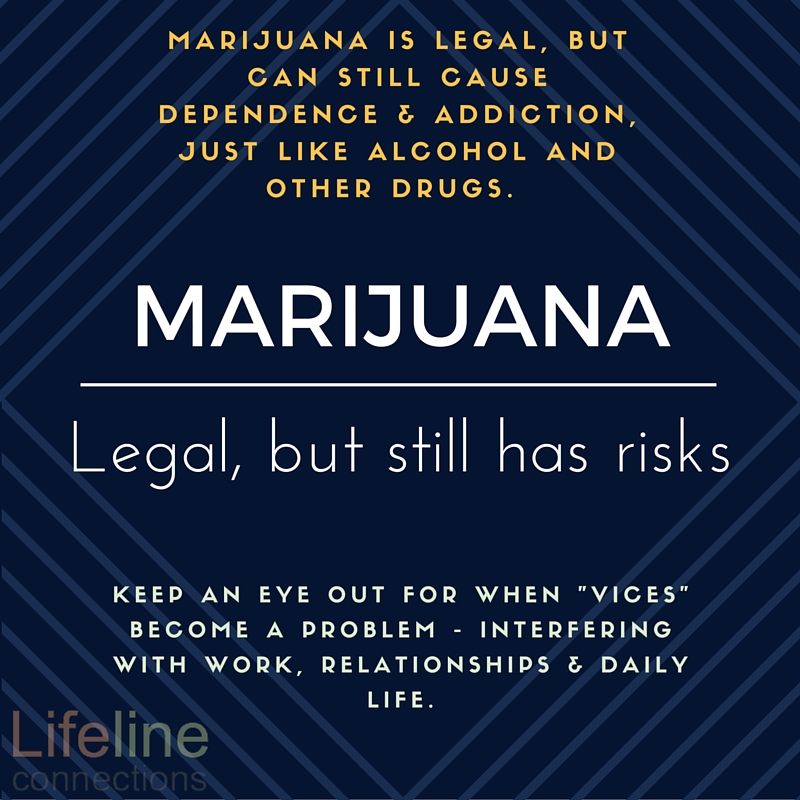
The Negative Impact of Marijuana Use
Marijuana is a subject well known for its controversy. Is it addictive? It is the gateway drug? Is it treatable? In this post, I will attempt to delicately approach the subject so as to inform and provide appropriate insight for anyone who wants to know the answers to these questions.
One of the best resources for this subject is the government website drugabuse.gov. If you haven’t studied it, check it out. They clearly answer many age-old questions. I will attempt to summarize the information for you, if you don’t have time to do some snooping yourself.
Here’s the scoop: marijuana, like many other substances, is considered a potentially addictive substance. Addiction is characterized by its interference with everyday life. For example, someone may be dependent on any substance if it brings them comfort, or if they use it to deal with stressful situations. Many people choose a number of vices in order to wind down at the end of the day. TV, desserts, wine, and social media browsing can all comfortably fit in this category. However, if these vices start to interfere with every day life, it can go from dependence to disorder, and finally to addiction. When a person starts to miss important meetings, drink before or during work, spend hours upon hours playing video games at the expense of his or her family members needs; this is a time to re-evaluate and seek some help.
Another interesting piece of evidence is the fact that quitting marijuana when used frequently results in similar withdrawal symptoms as other known addictive substances: irritability, physical discomfort, problems sleeping, and restlessness have all been reported for about two weeks after the quit date. This makes quitting a difficult task, and drugabuse.gov reports that many people addicted to this substance have attempted to quit approximately six times in their lifetime when used for a number of years.
Okay, so we have established that it can be an addictive substance. But, why quit? Many people use marijuana, and it is becoming increasingly socially acceptable. Consider these reasons to either seek help, or avoid using it in the first place.
First of all, it is no secret that marijuana is an impairment drug. Drugabuse.gov reported that there is a proven relationship between marijuana use impairing the user’s ability to drive. Furthermore, it is a drug found most frequently in the blood for those who have been involved in fatal car accidents. Marijuana has also been found to impede adolescent brain growth, resulting in lower IQ points and decreased ability to recall verbal information. Additionally, those who frequently use marijuana are more likely to drop out of school, report a lower satisfaction with life, and make less than $30,000 a year. Self-reports of heavy marijuana users have mentioned that they believe their marijuana use has a direct effect on all negative aspects of their lives.
Since Washington State has legalized the recreational use of marijuana, our facilities are seeing more people who are seeking help to deal with their addiction to this substance. We stand by the idea of living a clean and enjoyable life free from the chains of addiction. If you or a loved one is in need of assistance, we are available to help. Our goal at Lifeline Connections is to be your best resource for addiction recovery and be there with you every step of that recovery journey. Please don’t hesitate to email or call us with questions or for your initial screening. 360-397-8246 ext. 7580 admission_office@lifelineconnections.org
